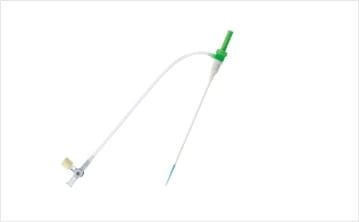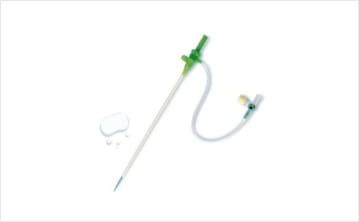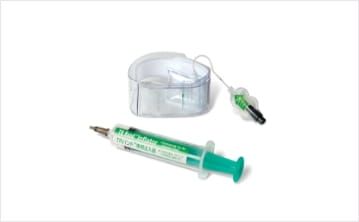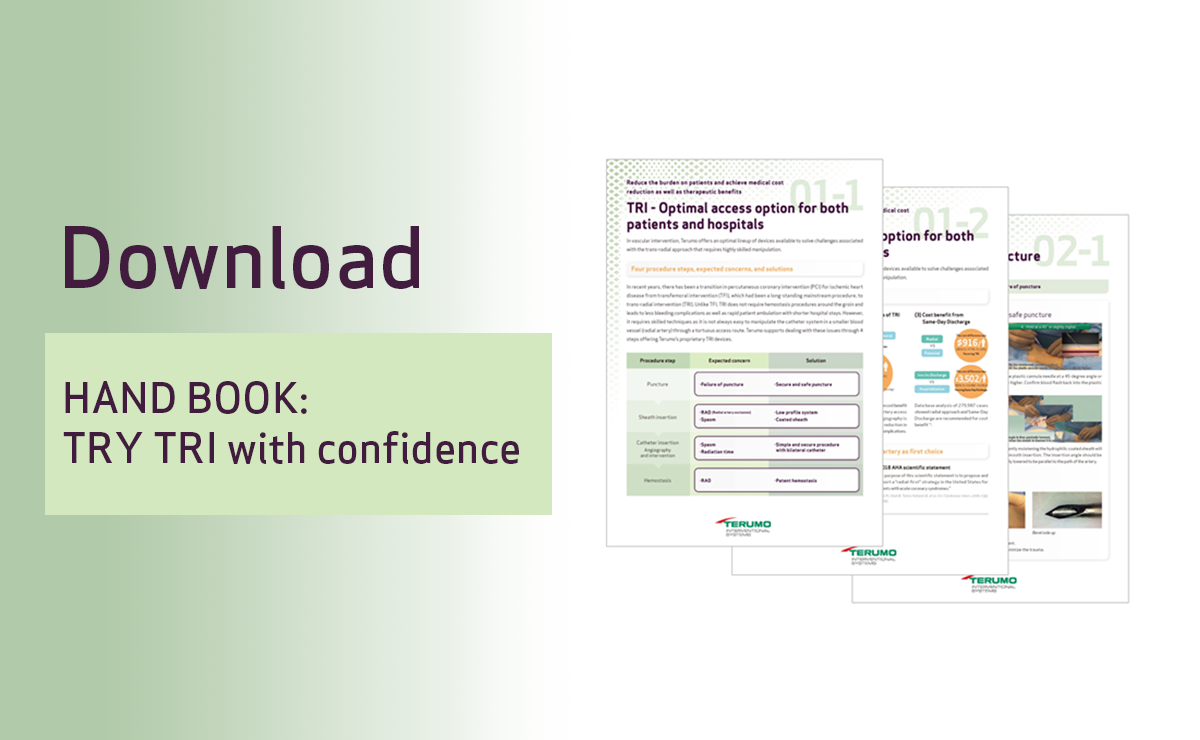How to TRY TRI
Learning Radial approach
How to TRY TRI
What is transradial coronary intervention(TRI)?
Transradial coronary intervention is a minimally invasive approach to perform coronary angiograms and interventions. The year 2022 marked the 30th anniversary since Dr. F. Kiemeneij performed the first transradial intervention (August 1992).
While transfemoral approach had historically been the standard access point for most cardiac catheterizations, adoption of transradial approach has increased as it is associated with better patient outcomes and reduction in bleeding complications.
Benefit of TRI
Improve Outcomes
Access was associated with a significantly lower risk for
- all-cause mortality
- major adverse cardiovascular events
- major bleeding
- major vascular complications.1
Cost Effectiveness
- Radial approach cost $275 less per patient from the compared to femoral approach.2
- Opportunity for same-day discharge
Improve Patient Care
- Nursing time outside the cath lab reduced.
- Improved patient satisfaction.
- Opportunity for same-day discharge
Expected Concern and Solutions
step01
Vessel Access

Expected Concern
- Puncture failure due to the small vessel
Expected Concern
- Radial artery occlusion due to the vessel damage caused by device insertion
- Radial spasm
step02
Catheter Insertion

Expected Concern
- Risk of trauma, vasospasm, and procedural interruptions
Solution
- Use 1.5 mm J-Tip guidewire
step03
Approach to Coronary Artery

Expected Concern
- Spasm due to catheterization
- Longer procedure time (Ex. Total ischemic time for STEMI)
Solution
- Use the universal radial shape catheter for both left and right coronary artery
step04
Hemostasis

Expected Concern
- Radial artery occlusion caused by prolonged high-pressure hemostasis
HAND BOOK: TRY TRI with Confidence
Are you worried every day about reducing the burden on patients and achieving medical cost reduction as well as therapeutic benefits? In this HAND BOOK, the problems and solutions that can be considered at each step of Puncture, Sheath Insertion, Catheter Insertion, and Hemostasis are organized in an easy-to-understand manner.
History of TRI
Terumo was one of the first companies to offer training and education programs for radial access. Click below to see more on Terumo’s contribution to transradial intervention.
We have interviewed to Pioneer of TRI in Japan.
Guidelines state radial artery as first choice section
“Radial access is recommended as the standard approach, unless there are overriding procedural consideration”
Neumann FJ, Sousa-Uva M, Ahlsson A, et al. Eur Heart J. 2019;40(2):87-165.
“Radial artery access is recommended in patients undergoing percutaneous intervention who have acute coronary syndromes or stable ischemic heart disease, to reduce bleeding and vascular complications compared with a femoral approach. Patients with acute coronary syndromes also benefit from a reduction in mortality rate with this approach.”
2021 ACC/AHA/SCAI Coronary Revascularization Guideline Executive Summary






